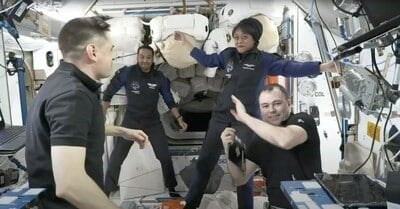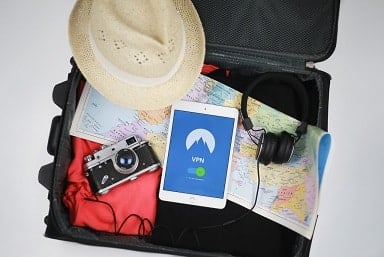The International Space Station (ISS) crew welcomed 2 Saudi astronauts today after they docked with the ISS in their Dragon 2 spacecraft.
The two Saudi astronauts, Rayyanah Barnawi and Ali AlQarni, and mission team crew arrived at 13:24 GMT, 16 hours of the rocket launch yesterday from NASA’s Kennedy Space Centre at Cape Canaveral, Florida, USA. This is a historic moment for the Saudi astronaut, Rayyanah Barnawi, who becomes the first ever Arab woman to fly into space to the ISS.
This is also a historic moment for the Kingdom of Saudi Arabia which is, as of now, the first Arabic country to send a woman on a space scientific mission just as it is also one of the few countries that has 2 astronauts on board the ISS simultaneously.
The studies that will take place in space by the 2 Saudi astronauts range from human research and cell science to artificial rain in microgravity in order to develop space science and progress in sending more manned spacecrafts to the moon and to Mars. In addition, the Saudi astronauts will also conduct three educational awareness experiments.
This space program has placed the Kingdom as an important player in the global community of space science research, and as a main investor in the service of humanity and its future.
The Saudi Space Commission (SSC) confirmed that the astronauts are fully trained and prepared to carry out their mission in space. SSC is also confident that they will accomplish the mission planned successfully and return safely to Earth.
The efforts by the SSC are designed to prepare future astronauts and engineers, through quality educational and training programs, participation in scientific experiments, international research, and future space-related missions – all of which will contribute to raising the status of the Kingdom and to achieving the goals of Vision 2030. The SSC has strategized to create primary objectives that serve national security interests against space related risks and encourage cumulative growth and advancement.
Register free for IMEX Frankfurt May 23-25 AND click here to schedule your FREE Photo / Video Interview with eTurboNews during IMEX




